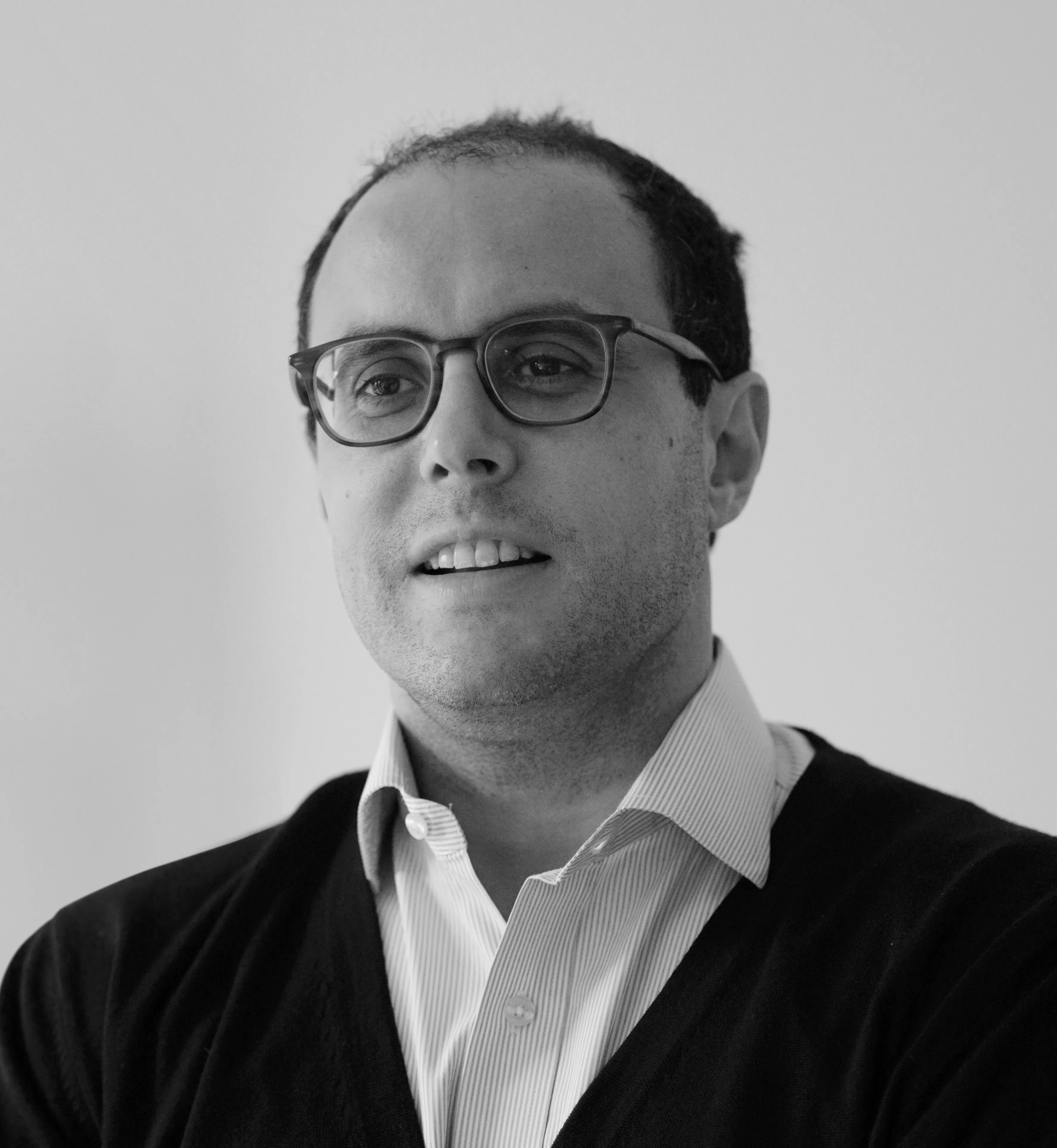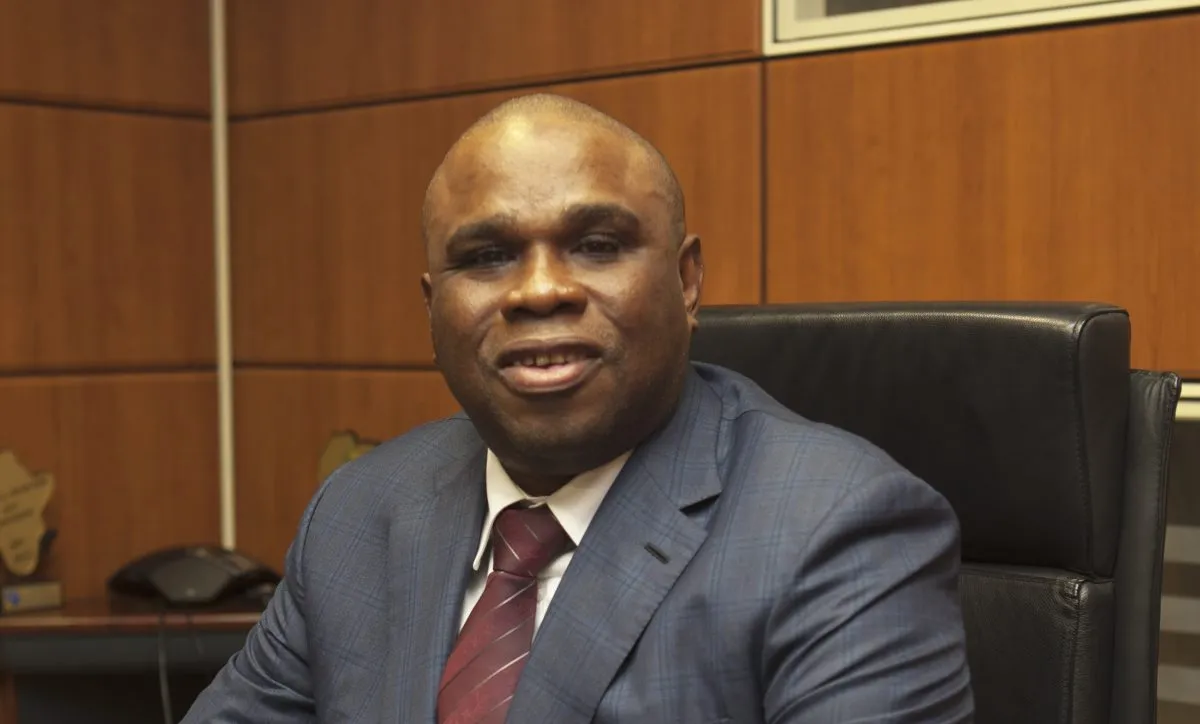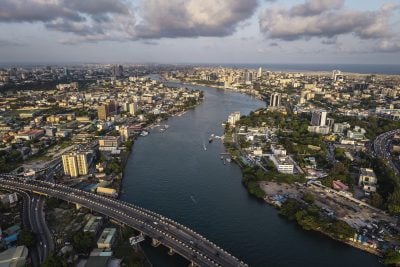Reflecting on his first, fairly vague introduction to what was to evolve into the behemoth it is today, Professor Benedict Okey Oramah says that back in the early 1990s, he had an uncanny feeling that the proposed continental trade finance bank, then still on the drawing board, was exactly what Africa needed to work its way out of the morass it was in – and that, despite the odds, it would succeed. He also knew he wanted to be a part of it.
Today of course, he leads the institution (having succeedeed the second leader, Jean-Louis Ekra in 2015) that is rewriting the African narrative and steadily but surely setting the continent on its next major leap forward and transform into an industrialised, progressive, increasingly prosperous and economically integrated region.
Recalling the beginnings, the young Oramah – then employed by the Nigerian Export-Import Bank which had been set up mainly to facilitate external trade at the time – was already steeped into the mechanics of how such organisations worked when he was invited as a delegate from his institution to the very first general meeting of the proposed new Exim bank in Abuja in October 1993.
Earlier, in May the same year, Babacar Ndiaye, then President of the African Development Bank and the moving spirit behind the concept of a regional Eximbank – then an unheard of concept – had obtained approval from the AfDB assembly to go ahead with the idea.
After intense discussions during that first meeting, it was decided that the headquarters of the new African Export-Import Bank (Afreximbank) would be in Cairo, Egypt and that Nigeria would provide the first head of the new institution. Shareholders included the AfDB, Nigeria, Egypt, Ethiopia, Gabon, Tunisia, Côte d’Ivoire, China and Standard Chartered Bank.
Seeing such a diversity of Africans coming together to create such an institution made a profound impact on the young man. “I felt privileged to be among the group of people who make the dreams and aspirations so eloquently expressed by the leaders a reality,” recalls Oramah.
Christopher Edordu, then head of the Nigeria Eximbank, was appointed as the premier President of the new institution and Chairman of the Board. He asked Oramah if he wanted to join him in the new venture.
Oramah jumped at the chance and resigned from his old post rather than transfer on secondment as was the prudent way. “I burnt my boats, there was no way back! The Bank had all the ingredients to make a change from day one. There was no way this experiment would not be successful” he says. “It meant I had to give it all I had. It was also because I had every confidence in the President, who had been my boss.”
But Africa was still struggling to come to terms with the “lost decade” of the 1980s when optimistic dreams of a bright new dawn for the continent had turned to ashes as political turmoil and collapsing economies stalked the continent.
“Africa had been doing better than Asia in the 60s and 70s but suddenly deteriorated so badly that it was openly referred to as a basket-case – a place where corruption and stagnation were the standout features,” reflects Oramah.
With the winds of pessimism and failure swirling around them, the small staff felt the heavy onus to succeed – or at least survive – settling heavily on their shoulders.
This was felt very acutely by the leader, Christopher Edordu. “He was a deeply intellectual person, an accomplished banker and very hardworking,” says Oramah. “He was determined that we would prove the naysayers wrong; so he made sure that the Bank operated at the highest standards of professionalism.”
So rigorous were the procedures set in place that for the first three or four years, it achieved the seemingly impossible – it didn’t have even a single bad loan. “It left us wondering whether it was even a bank,” Oramah reflects.
The trade-off was that growth was initially slow. However, it was necessary for the Bank to be cautious. Apart from the need for it to install its own systems and fine tune its operational procedures, the environment in which it was born was still one of high risk.
Innovation was called for. The solution was to use trade finance structures to manage country risk that was inherent in the continent. “That worked very well for us because it meant that we didn’t lose any money in the early years.”
Such prudence won the confidence of partners and stakeholders, establishing the Bank as a credible proposition even in a continent that was still economically fragile.
Laying a solid foundation
Oramah says that it was that foundation of rigour, discipline and commitment to the mission established in those first years of its existence that has helped the Bank till the present day. “We instil these values in anyone who comes to work at Afreximbank.”
Reflecting on his early times at the Bank, Prof. Oramah says he moved to Cairo in 1994 to join the team on the ground a few months after Edordu had set up shop. He joined others, some who had been seconded from the AfDB, including the Bank’s first Executive Secretary who was tasked with getting the operation up and running.
“We were a team of six, working from the Intercontinental Hotel. We were there for months until we started moving to our temporary office at the World Trade Centre.”
Having a small team for the first few years helped keep costs low and also enabled the Bank to control the expansion of the balance sheet. “The goal of Mr Edordu was to make sure we had an institution that would earn the respect of anybody, anywhere in the world. And he succeeded in building that foundation and it is on that foundation that we continue to build till today,” comments Oramah.
The Bank’s first ever transaction, made on 30 September 1994, involved the Ghana Cocoa Board. “We took a participation in the syndication to the tune of $6.5m. It was the second time that Cocobod was syndicated in the market and it paved the way for future transactions,” he reflects.
“We began very cautiously, participating in syndications while we studied the market before we started using structured deals to do bilateral transactions. Later, we would expand to providing line of credit to banks.”
This attitude reflects the relentless self-improvement which has been a key tenet at Afreximbank since. That has meant incorporating ideas from others and no-holds barred discussions. Oramah says he finds criticism more useful than praise. “It is the criticism and new ideas that others bring to you that you can use to improve.”
The Bank, therefore, has built and cultivated a vast network of experts and professionals who give advice and help review the Bank’s operations. “We incorporate all of that in our own five-year plans and it has worked well for us. We find that many institutions may be doing something similar to what we are doing so that has also helped us to build strong partnerships with those institutions.”
On a personal level, Oramah is a firm believer that history is a great teacher and the study of history is essential for any leader who has set out to do great things.
“History is a source of courage,” he explains. “If you study history, there can be no challenge that is too great for you because you will find that others have taken on even more perilous challenges than you are faced with.”
That conviction was tested by the 2008 financial crisis that reverberated around markets all over the world. What Oramah describes as the event that gave him most cause for concern.
“The debt crisis shaped the contours of the institution that emerged from it. All of a sudden, banks that you thought would never be in difficulty were calling and asking us to send money to support them. There was even one bank that failed to honour our deposits with them. As a banker, that is the ultimate nightmare.”
Nevertheless, Oramah says, the lessons from the crash were beneficial to the Bank. “We developed systems to help us manage liquidity on a day to day basis. We took certain decisions that, with hindsight, made a huge difference.
“We took a certain deposit that was at a higher rate than we’d normally do but, in the end, it became our saving grace, enabling us to expand our loan portfolio when other banks were struggling.
“That was when we created the alliance of African international financial institutions which enabled us to mobilise more deposits from African institutions. So from a defensive position,” Oramah adds, “we quickly rallied and helped lead a way in crafting a response to the crisis.”
The global financial crisis also led to other structural shifts. “The world witnessed a major shift in the cartography of African trade over the last few years, with South-South trade becoming a major driver of African trade and growth.”
Over time, Afreximbank has also become an important instrument for crisis response management by Africa, providing counter-cyclical support to help its member countries to better absorb numerous adverse economic shocks associated with recurrent cycles, working closely with the African private sector to expand economic opportunities during upturns and softening the blows during contractions.
“The Bank disbursed over $10bn under its Countercyclical Trade Liquidity Facility to help the continent achieve an orderly adjustment to the commodity price shock of 2015/16. Through its Pandemic Trade Impact Mitigation Facility, the Bank is helping to contain the social and economic fallout from the Covid-19 pandemic in its member countries.”
Interconnected solutions
The Bank’s initiatives are guided by and anchored to its grand objective of promoting trade. “When we are deciding on our initiatives, the question we ask is, ‘to what end?’ The answer to that question may even lead you away from trade but it is those things that will have the most impact.”
The Bank itself is proactive in tackling market failures and it is increasingly taking on the role as Africa’s voice in the global arena. More recently, it has made waves in its relentless advocacy for a fairer reorganisation of the global financial system. Oramah’s support of African initiatives cannot be understated. He was instrumental in the launch of the Liquidity and Sustainability Facility (LSF), which will bring the benefits of a home-grown repo market to the continent.
The Bank has also committed itself to supporting an African central bank, a continental stock exchange and an African monetary bank.
The Bank’s role has grown significantly in size and scope. In September 2015, when Prof. Oramah assumed leadership of Afreximbank, total assets were $5bn. By the end of 2016, this had increased to $12bn. This figure has since grown to over $32bn.
Oramah says the Bank has expanded its activities, not because it has increased its mandate but rather that it has been a natural progression and the Bank is simply executing what it has been set up to do.
Nowhere is Oramah’s ambition to improve trade and expand the Bank’s horizons more clear than in last year’s ambitious Africa-Caribbean Trade and Investment Forum (ACTIF).
The establishment of a brand-new partnership will advance the aspirations of the AU when it designated the African diaspora as the sixth region of Africa.
Oramah’s instincts, honed over three decades in development and finance, told him this new partnership could be something special. Eleven of the 15 CARICOM economies are now signatories to the Partnership Agreement between Afreximbank and each of them.
As a result, a number of groups, including a consortium made up of three Egyptian behemoths – Orascom, El Sewedy and the Hassan Allam Group are finalising major contracts to build roads, ports and logistic facilities across the Caribbean states, part of these funded by Afreximbank.
Long vision of founding fathers
Oramah says the founders of the Bank, showing remarkable vision, had recognised this and produced a charter that gave the institution a broad mandate. The objective of the Bank, to promote, facilitate and finance intra and extra-African trade, he argues, stems from the understanding that there is nothing you can do in isolation that will yield the results desired.
He points to the Pan African Payments and Settlement System (PAPSS), which the Bank launched in 2021, by way of example. “With the fragmented payment systems in the continent, how can we promote regional value chains?” he asks.
“You can go and build industries all over – but you will not achieve that objective because you will be hampered by the challenges in the payment system. An integrated payment system, however, immediately opens the market and provides a platform for innovation.”
That integrated approach, he says, is what propels Afreximbank. The raft of innovations from the Bank are connected on the African Trade Gateway, enabling increasingly seamless trade in Africa – now bolstered by the African Continental Free Trade Agreement.
Oramah says the support from the Bank’s shareholders has been vital to the Bank’s growth. “I could not wish for stronger support from shareholders. They have been there for us through our capital increases. We launched less than two years ago a General Capital Increase – our second in 30 years – to raise $6.5bn, $2.6bn of which should be paid up over a five year window. Today, if you adjust for the discount, we have slightly over $2bn in paid up capital, and we are less than two years in this process. That demonstrates great confidence and support.”
Support from member states, who are also shareholders, has also helped the Bank operate in difficult environments. “They always make sure we are given preferred status in our operations in their countries. Even when we lend to private sector bodies and there is a challenge, the government and central bank in that country step in to make sure that there is resolution.”
Oramah can also count on a Board that is so rich in knowledge and experience that he calls Board meetings “intellectual excursions” where insight and perspectives from the Board are applied to enrich decision making and strategy formulation at the Bank.
“We share the belief that Afreximbank belongs to Africa. We all believe that the Bank is a child of necessity and it is a Bank that we must make stronger because having such a Bank that is strong and capable, is essential to Africa’s future. Without it, we will be left behind.”
This conviction, he believes, is the driving force behind the support from shareholders as well. “This is a collective endeavour and we are just the agents working to achieve the aspirations of the shareholders.”
Oramah says running a Bank with such an important mission is an immense source of pride. Receiving the Afreximbank Outstanding Staff Award in 2010 was a particular highlight for him. “To me, that meant that all the sacrifices from over the years had been recognised, not only by management but by my colleagues as well. So that was a particularly humbling day.”
On the macro level, however, he harks back to history. “I am particularly pleased that it is Afreximbank that is helping to realise the vision of the founding fathers of the Organisation of African Unity. We did some research and we found that in 1963, at the first meeting of the OAU, the 28 leaders who gathered that day made some very important decisions.
“They set out as a priority, the creation of a continental free trade agreement, the creation of a pan-African payment and clearing union, as they called it, the organisation of trade fairs to promote trade, the transit guarantees to facilitate the movement of goods across borders.
“I am happy and proud that 60 years after that meeting, thanks to the vision of those who founded Afreximbank 30 years ago, the Bank is making all those aspirations a reality.
“I am certain that those who helped found the Bank would be proud, too. We have proven, even to those who doubted us in the beginning, that it is important to have your own institutions.”
“Every African that spares a moment to look at the history of the Bank,” he says, “should be very hopeful about the future of our continent: it is a bank that was created at the height of Afro-pessimism; a Bank that was created at the height of an unprecedented economic crisis; a Bank that was created when many countries that were supposed to support it were struggling to survive.
“Despite the challenges the continent was facing at that time, they resolutely supported the Bank. History has shown that they put their money where their mouths were. I think every African, every child born in Africa, should spend the time to look at and study the history of the African Export-Import Bank.”
Oramah may have already made his mark but he is clearly not finished re-defining the African financial system and perhaps setting it on course for true transformation. These are some of the reasons his country awarded him the title of Commander of the Order of the Niger (CON).
Want to continue reading? Subscribe today.
You've read all your free articles for this month! Subscribe now to enjoy full access to our content.
Digital Monthly
£8.00 / month
Receive full unlimited access to our articles, opinions, podcasts and more.
Digital Yearly
£70.00 / year
Our best value offer - save £26 and gain access to all of our digital content for an entire year!

 Sign in with Google
Sign in with Google 



